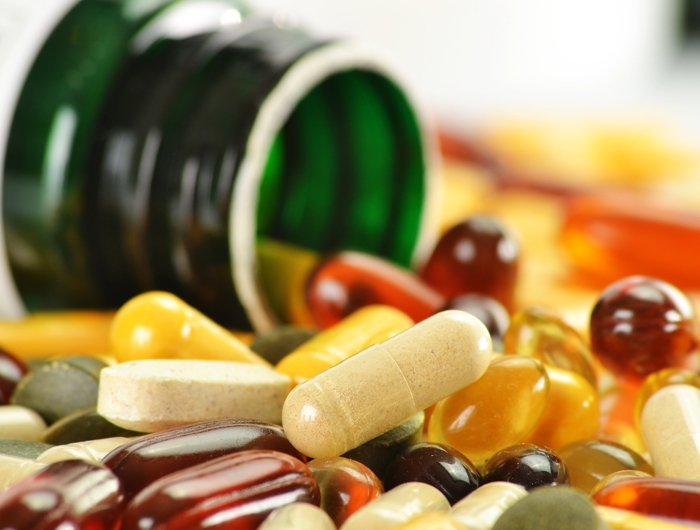Important nutrients: Do we need the nutritional supplement?
You have to imagine our body as an orchestra: everything has to be very finely tuned to one another. To prevent failures and discordances, we need a whole range of different substances, such as vitamins and minerals. Because the body cannot produce these itself, we have to supply them from outside.
This can only be achieved through food, for example fruit and vegetables. Anyone who pays attention to a balanced diet in everyday life usually does not need any additional nutritional supplements.
An exception are certain groups such as pregnant women, athletes or (chronically) ill people. Vegetarians and vegans can also suffer from deficiencies. You should keep an eye on the levels of iron , calcium, zinc, iodine, vitamin B12, B2, D and omega-3 fatty acids.
In any case, the following applies: You should not take dietary supplements on your own initiative and without consulting your doctor. Beforehand, a blood and, if necessary, cell analysis should be carried out to determine whether there is a deficiency – and if so, which one. Ask your doctor specifically if you feel like something is wrong.
Beware of exaggerated advertising promises
However, measuring such values is not a standard examination and you sometimes have to pay for it yourself. Determining vitamins and minerals costs around 50 to 100 euros, depending on the number of substances determined. This can quickly be worth it because unnecessary vitamins won’t have to be taken costly for years.
Caution is advised: Anyone who is considering taking dietary supplements should be careful of exaggerated promises of effectiveness. In 2011, the consumer advice center found that 64 of 70 dietary supplements examined in America were actually not marketable.
An official investigation into dietary supplements showed that of 450 products examined in 2019, 38 percent were defective. Among other things, it contained substances that are not permitted in the EU
To avoid such bad purchases, avoid shopping online (even if the products are cheaper there) and buy in pharmacies instead. The employees can advise you accordingly, because you will not find the same dosage in every product and therefore very different effectiveness.
The practical tips from the “Healthy & Healthy” experts
Before you resort to pills and the like for nutritional supplements, try the conventional route: Eat five portions of vegetables, salad and fruit a day and thus prevent a vitamin deficiency. This also reduces the risk of becoming overweight, as there is less room in the stomach for unhealthy things.
If you don’t have time to cook fresh, you can use flash-frozen, natural vegetables, which also contain a lot of vitamins and minerals. An apple, for example, has 3,000 so-called secondary plant substances, and a tablet has a maximum of twelve vitamins.
This shows that a tablet can only COMPLEMENT food and never replace it. In addition, many of these products are severely under-dosed because the manufacturers want to save money by only packing in a very small amount of substances. So there is often no effect.
The top 5 most efficient fruits and vegetables:
-
Peppers contain a particularly high amount of vitamin C for the immune system.
-
Carrots strengthen eyesight thanks to the vitamin A they contain.
-
Broccoli provides vitamin B9 for growth in the body.
-
Radishes and beetroot contain iron and are also low in calories.
-
Cucumbers provide a lot of vitamin A.
It is important to buy the products fresh and use them quickly because heat, light and oxygen reduce the vitamin content.

